Memorable Queer Characters in TV Shows
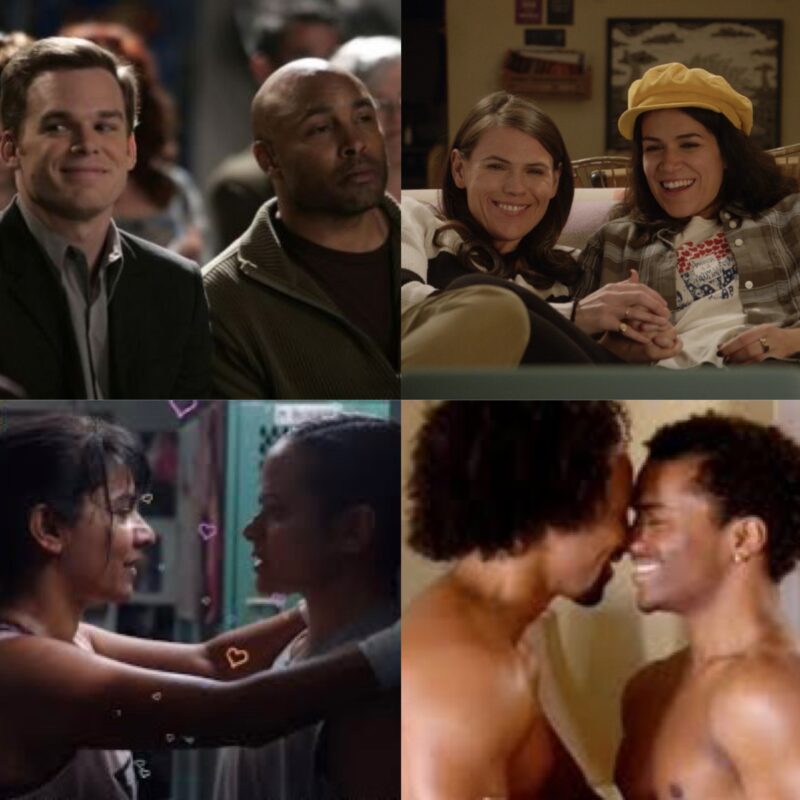
Intro & Disclaimer
It’s Pride weekend! I thought it would be fun to look back on many noteworthy queer characters I’ve seen in shows. I love movies, and I’ve seen many. However I have always been more interested in shows because I like a lot of plot, characters, and character development over extended periods of time. Good tv needs to grab you right away and keep you engaged. And when things are queer, it makes it all the more engaging for me.
All of that being said, I have not seen every tv show. This list will not be exhaustive or even include every queer character I have ever seen. Think of this as a highlights list, a taste of some LGBTQ characters who really stuck with me. I also, for the most part, chose to focus on characters I actually liked or felt strongly about. No random episode guest characters or extras. Feel free to let me know in the comments how some of these characters made you feel. Plus any others I didn’t mention. This list is in no particular order. I am leaving out queer characters of the superhero genre, as I’ve already written about them before.
Noah’s Arc: Most of the Cast
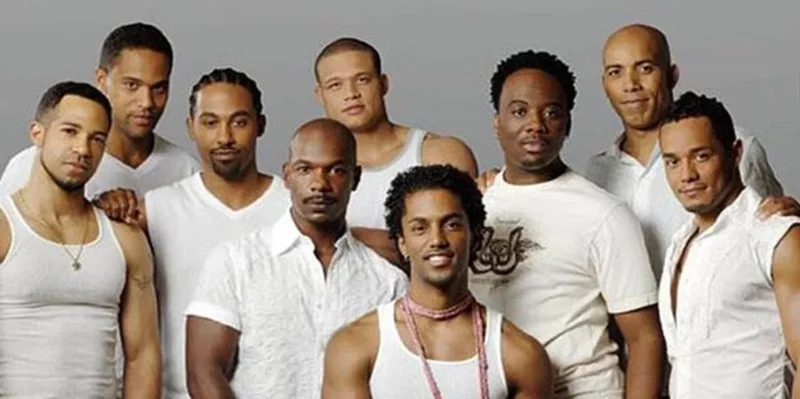
I’ve written about this wonderful series before, and it is one of my personal favorites. Hilarious, heartwarming, steamy, and unapologetically Black and gay, this series is a must-watch. The acting can be a bit campy (for those who mind, I don’t), but who doesn’t love a little camp? Mercifully, it is returning.
The DL Chronicles: Most of the (Male) Characters
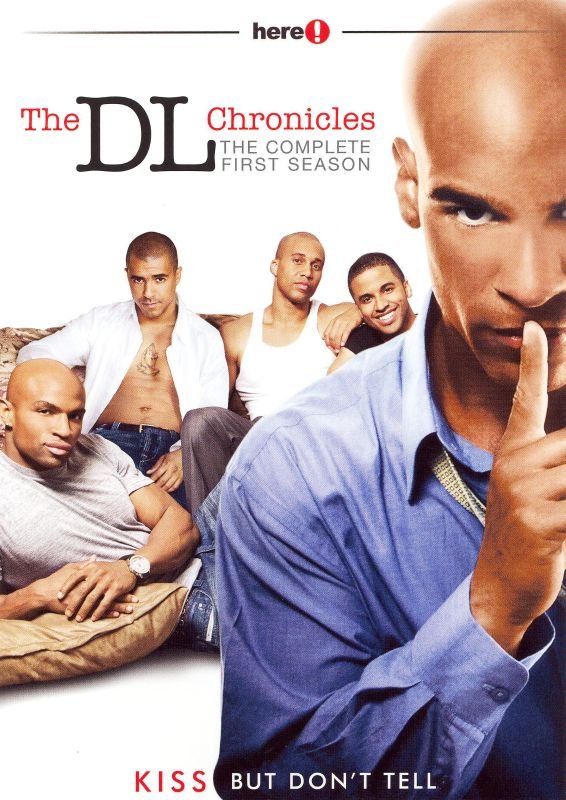
I discussed this miniseries along with Noah’s Arc, as it was one of the first gay series I ever saw. Whereas Noah’s Arc tended to be more comedic, The DL Chronicles tended to be more serious. It’s a great series. Great for anyone curious about the complicated lives of different types of Black men on the DL. The series is also pretty hot, which is not the reason I watched it in the first place at all.
Harley Quinn: Harley Quinn, Poison Ivy, Clayface, Catwoman, Riddler, and Others
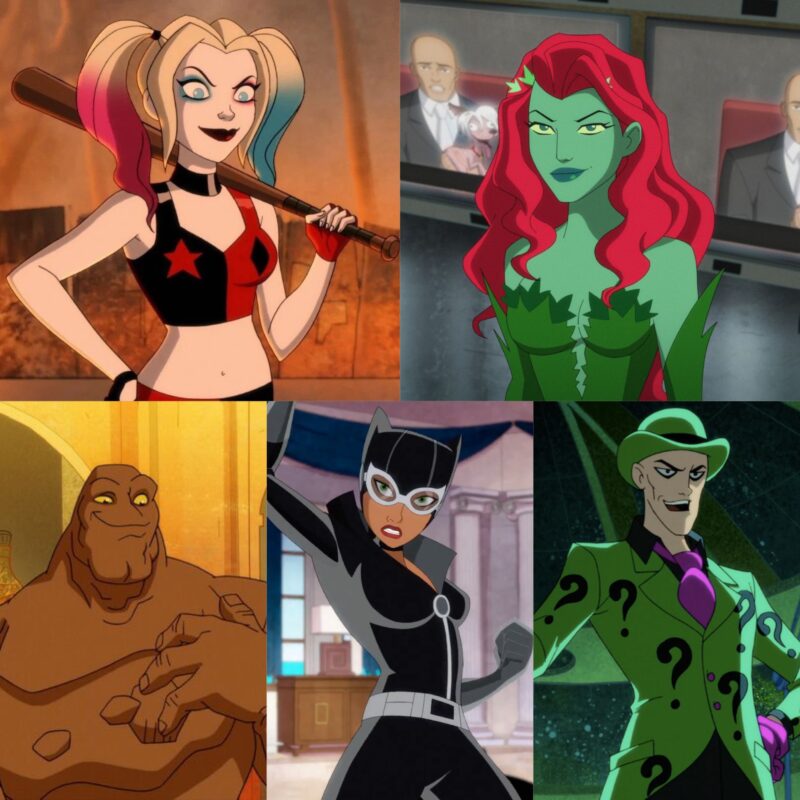
A suprising delight, I initially skipped this series when I learned Poison Ivy was paired with some C-lister villian. It wasn’t until I saw a clip of Harley and Ivy after having hooked up that I watched the series from the beginning. Kite-Man’s basicness and his wack relationship with Ivy aside, the show was an instant fave.
Filled with queer characters, the series hit an altime high once the show remebered that Harley and Ivy belong together. The season two finale remains one of the best season finales for any show, animated or otherwise. Other shout outs go to Clayface’s theatrical gay campiness, Sanaa Lathan’s incredible vocal quality and performance as Catwoman (confirmed to be bi and having previously hooked up with Ivy), and the Riddler’s devious charms and impressive gains in season two.
Six Feet Under: David Fisher and Keith Charles
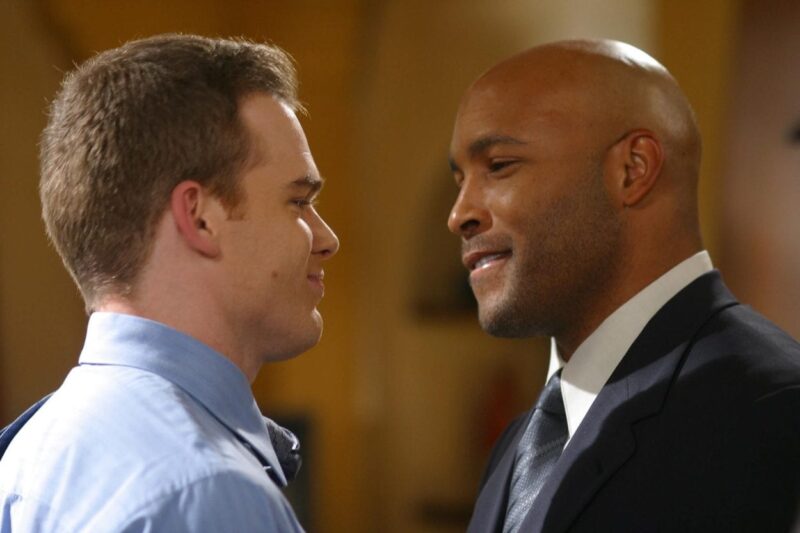
Alan Ball was in his bag when he created, executive produced & wrote this groundbreaking series. A series that also expertly explored life, death, love, sex, family, and intergenerational relationships. The series also broke barriers for LGBTQ relationships, love, characters, and life overall. David and Keith were very well-developed and nuanced in ways many of us hadn’t seen prior. They set the stage for other queer couples and characters thereafter.
True Blood (seasons 1-5): Lafayette Reynolds, Tara Thornton, Pam Swynford de Beaufort, Jesus Velasquez, and Naomi

We’ll just ignore those abysmal final two seasons. Lafayette is easily one of the most iconic characters of a gay male character ever, feminine and tough as nails. His cousin Tara, though often disrespected by the narrative, was expertly played with potent nuance every second she appeared onscreen. Pam was hilarious and incredibly fun, though devoted to a fault (to Eric). She was also not always the nicest to Blacks (though possibly mostly because they were humans). Jesus was charming and utterly fascinating. Naomi, though limited in screen time and character development, was a welcome change to Tara’s prior tragic loves and her Closet Key.
Special mention also goes to Russell Edgington, one of the best villains of the series, as well as his bitchy and lusty paramour Talbot. Eric Northman is possibly bi in the series as well. Despite the heart and smoldering performances given by the actors, the main drawback for the queer representation in this series was that the queer sex scenes were spare and far more tame than the cishet ones.
Queen Sugar: Nova Bordelon, Chantal Williams, Dr. Octavia Laurent, and Micah West
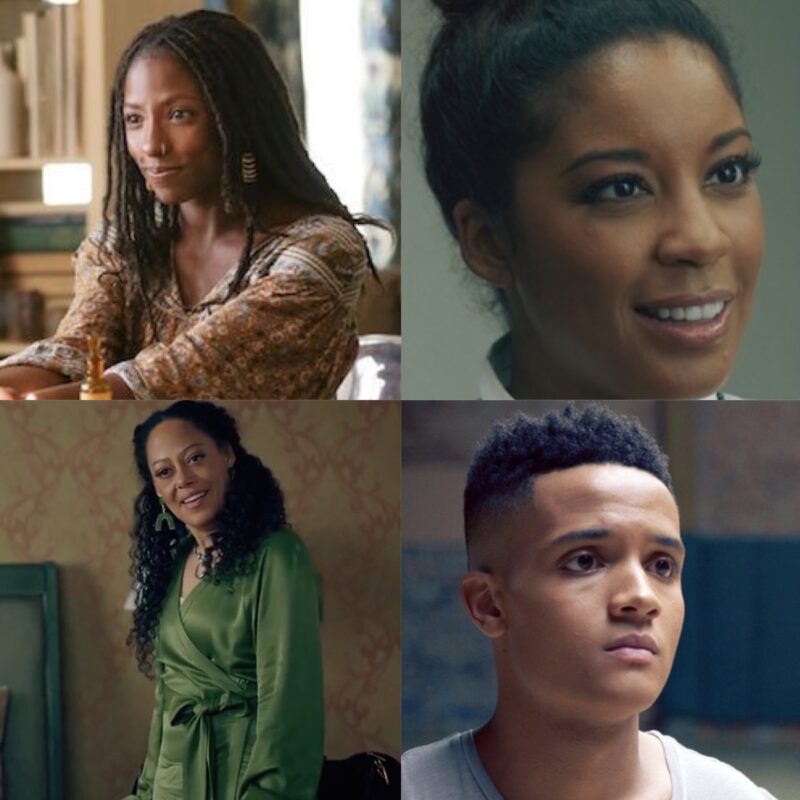
Nova Bordelon, our lead, also played by Rutina Wesley, is openly bisexual. Her first same-sex relationship onscreen is with Chantal Williams, a fellow activist. Dr. Octavia Laurent, played by Cree Summer, is a former flame of Nova’s who returns in a later season. Also later in the series, Micah West, Nova’s nephew, and Charlie’s son, discovers he might be bisexual when he discovers feelings for a friend named Isaiah. Nicholas Ashe, his actor, has come out as queer in recent years and is in a super cute relationship with Justice Smith.
Pose: Most of the Cast
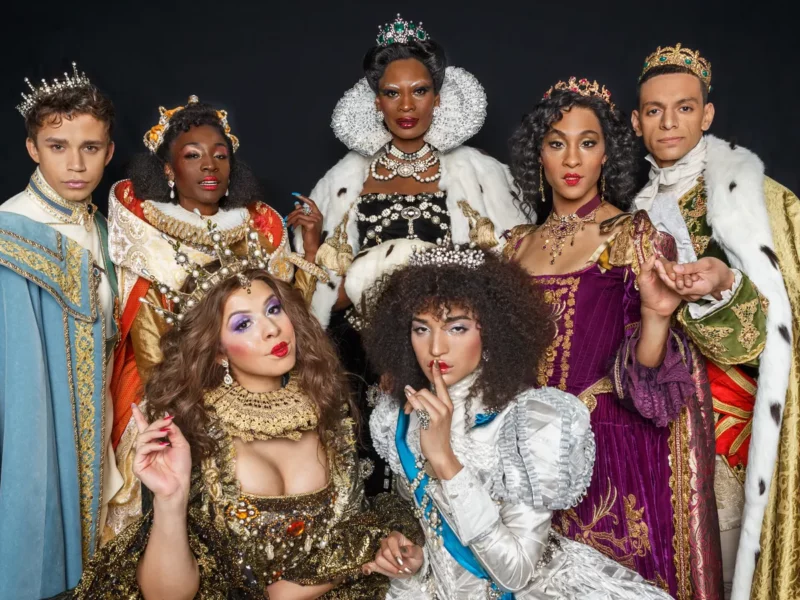
When we lost Noah’s Arc for as long as we did, we lost the only Black-led LGBTQ series we had. And then we got Pose. Despite being created by Ryan Murphy and company, the nuance and authenticity of the Black LGBTQ experience were mostly thanks to Janet Mock. Though the second Black-led LGBTQ tv series, it was the first to feature mostly Black transgender women in principal roles as well as ballroom culture. Riveting, layered, funny, emotional, excellent performances, and filled with LOOKS and fashion, the series never managed to disappoint. It was gone too soon, truly.
P-Valley: Uncle Clifford, Lil Murda, Mercedes, Farrah, and Big Teak

This great series is another authentically, unapologetically Black series that centers on a strip club and the people who work in it, around it, or come into contact with it. It’s more than that, but I don’t want this to be a dissertation, so just go watch it y’all! The series also features a myriad of LGBTQ characters: non-binary and queer Uncle Clifford, queer Lil Murda, bisexual Mercedes, lesbian or bisexual Farrah, and queer Big Teak. Unlike, say, True Blood, the queer sex scenes aren’t rare or downplayed in comparison to the cishet scenes. The queer characters are prominent, their sex is as hot and (arguably) numerous as the cishet ones, and they are given real depth as characters.
Degrassi: The Next Generation; Alex Nunez, Marco Del Rossi, Dylan Michalchuk, Paige Michalchuk, Riley Stavros, Zane Park, Adam Torres, and Fiona Coyne
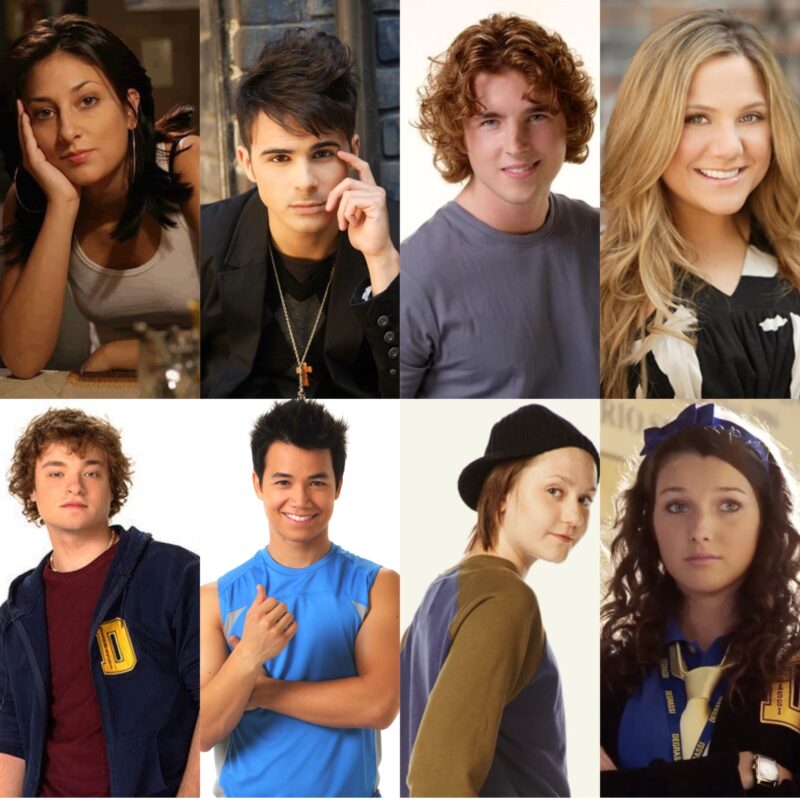
Very popular long-running Canadian teen drama famous for making Drake famous, Degrassi: The Next Generation has covered countless social topics concerning teens and their families. Underage drinking and partying, substance abuse, underage sex, teen pregnancy, mental illness, and many more. Naturally, LGBTQ issues and topics would come up as well and there have been way more LGBTQ characters than I’ve listed here. Marco, Dylan, and Riley are gay. Alex and Fiona are lesbians. Paige and (I think) Zane are bisexual. And Adam was the very first trans character in Degrassi history. Many of these storylines and characters broke barriers, especially for teens and young adults.
Glee: Kurt Hummel, Blaine Anderson, Santana Lopez, Brittany S. Pearse, Dave Karofsky, Unique Adams, Sebastian Smythe, and Sheldon Bieste
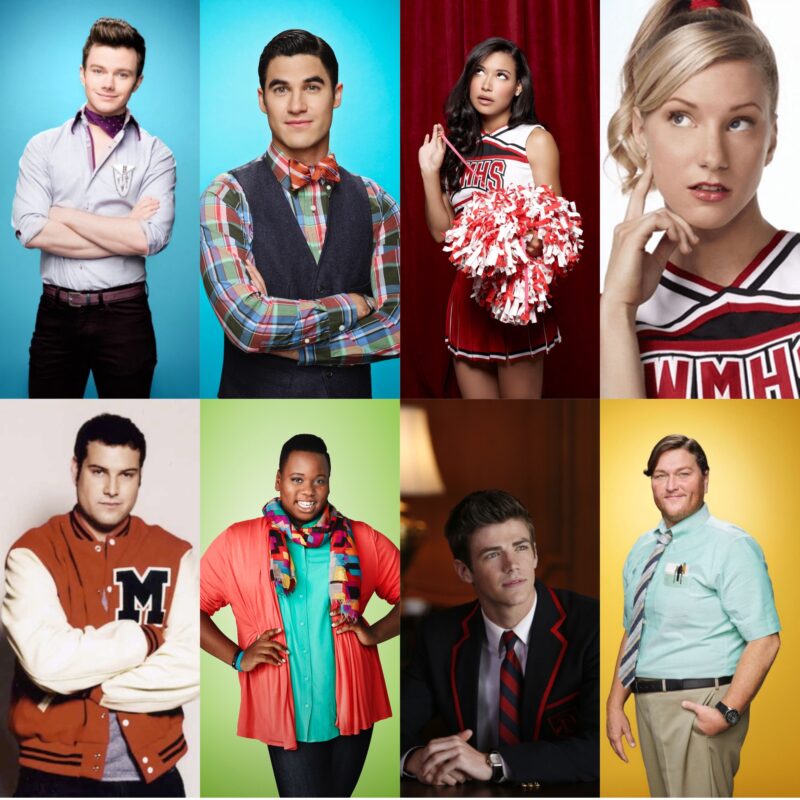
Not unlike Degrassi did years ago, Glee ended up breaking barriers for LGBTQ characters and youth. Ryan Murphy’s witty and hilarious dialogue aside, unfortunately, some characters and storylines weren’t the most realistic and were often quite stereotypical. Many felt Kurt was nothing but effeminate stereotypes (though I suspect some folks just don’t like effeminate gay men or bottoms). Blaine’s introduction, especially post-Karofsky bullying/surprise gay reveal, was pure wish fulfillment. Karofsky’s storyline implied, for many, that homophobic bullies are only bullies because they are secretly queer themselves. Bieste’s transition storyline was sudden and rushed and Unique catfished a boy for a date. Yet even with those characters and storylines, there managed to be depth and meaning in the performances and writing.
However, Santana (along with Mercedes) was the literal GOAT of the series. Brittany was a delight from start to finish. Sebastian, played by the only live-action Barry Allen we needed, was a catty and evil bastard with charisma. Not to mention all those iconic musical numbers, delicious drama, meme-able one-liners, and twists. The show was a musical that brought countless musical theatre shows and numbers to the mainstream (especially those of us nowhere near Broadway). Gay AF in that premise alone.
Broad City: Ilana, Abbi, Jaime, and Others
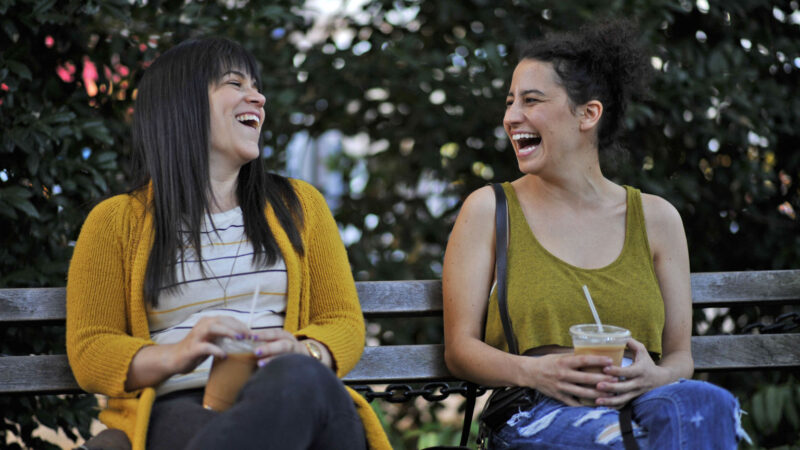
Hilarious, punchy, and unapolagetically feminine and queer, this show is what Comedy Central needed. Ilana is sexual, absurd, queer AF, and wild while Abbi is awkward, pensive, more orderly but definitely messy. The show mostly revolves around their rock-solid friendship and respective romantic/sexual antics. Ilana’s roomate, Jaime, is gay and also hilarious. Abbi is later revealed to be queer herself when she dates a woman, played by gay icon Clea Duvall. A good time indeed.
Schitt’s Creek: David Rose, Patrick Brewer, Jake, and Ronnie Lee
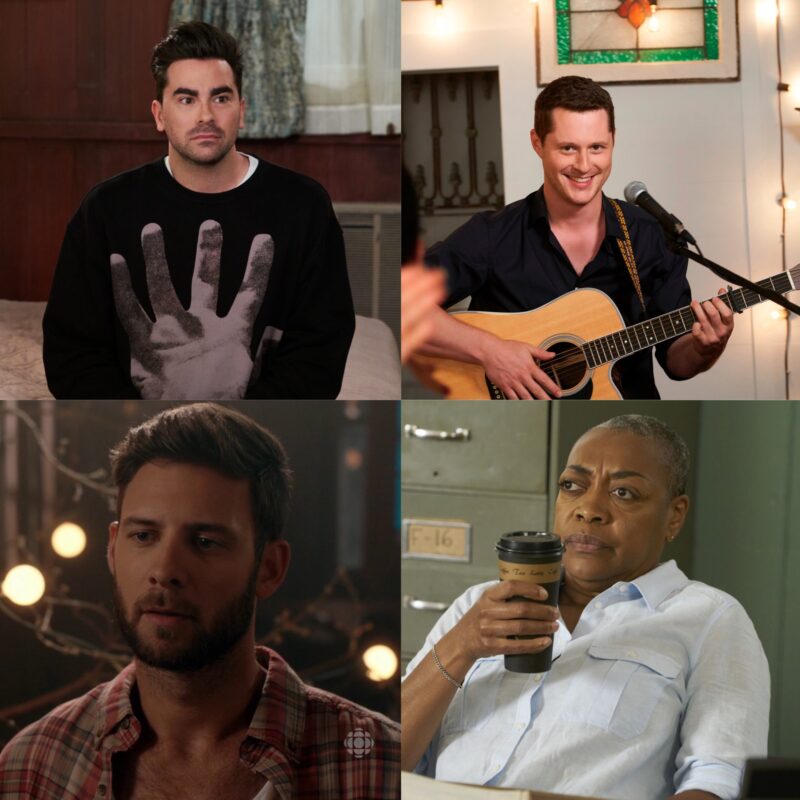
This series is funnier than I can even describe. Excellent pacing, great one-liners and dialogue, recurring themes and running gags as well as some truly excellent acting and comedic performances, Schitt’s Creek is a great time and beyond bingeable. At about thirty minutes an episode for up to thirteen episodes for five seasons, the show packs in a lot of story and comedy and makes excellent use of its time. Even beyond the queer characters, Alexis is a vapid delight, Moira a dramatic theatrical chariacture (who reads very much like a flamboyantly gay man in the very best of ways), and Johnny is a bewildered man who comically misses the point.
David Rose, like the rest of his upper-class family, is awful. The show is all about their immediate fall from grace and having to contend with living humbly in a podunk town. While he slowly develops into a kinder human being over the course of the series, he never quite loses his edge or addictively sassy attitude. The show surprises many viewers and Stevie by revealing that David is not strictly gay, but is in fact pansexual, a fact well-known and accpeted by his family.
His ultimate love is Patrick Brewer, a business partner who discovers his own queerness (gayness in his case) when he falls in love with David. Previously we had David and his best friend/ex-friend with benefits Stevie hooking up with Jake, a hot bisexual guy who doesn’t committ. Rounding out the list here is Ronnie Lee, the only Black person in the show of import (I know… I know) who is quite gay, quite funy, and very unamused by the shenanigans of the Rose family. While not a regular persay, Ronnie does seem to appear more and more as the series goes on.
Harlem: Quinn, Tye, Aimee, and Others
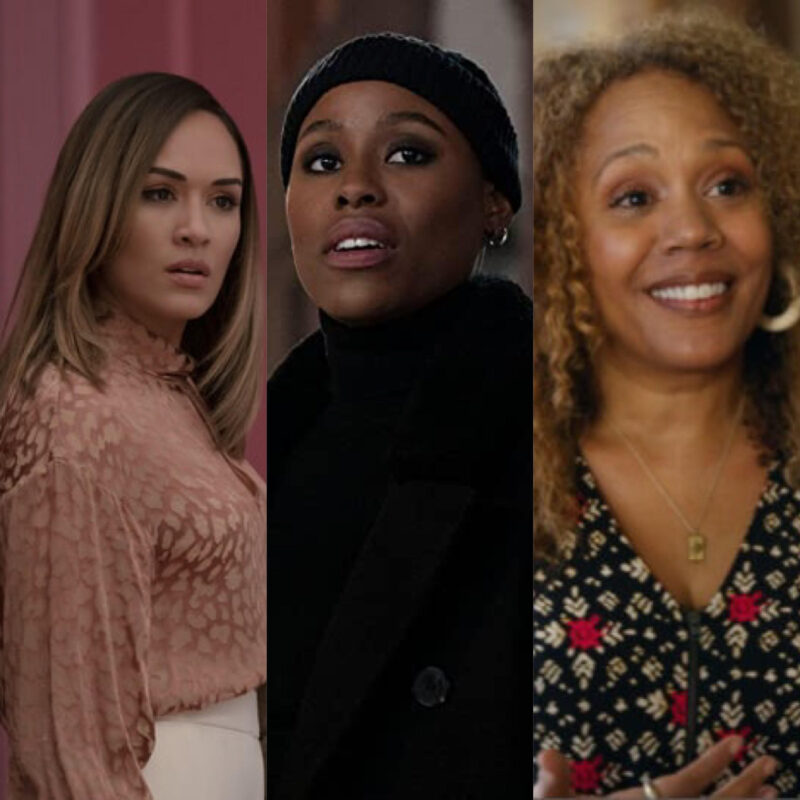
Yes, this is the show where that famous Meagan Good meme (the one where she looks confused) came from. Given her, ahem, recent antics, I understand folks skipping or abandoning this series. But I would be remiss to make a list like this and not shout out the amazing queer characters, queer storylines, and overall not shying away from or downplaying queer women sexuality and desire.
Special mention to Jerrie Johnson who plays Tye Reynolds, Grace Byers as Quinn, and Black witch icon herself, Rachel True as Aimee who all gave mazing performances. Quinn’s confronting of her mental health issues due to the end of her first relationship with a woman, as opposed to a man (as everyone might have expected), was captivating.
American Horror Story: Too Many to List
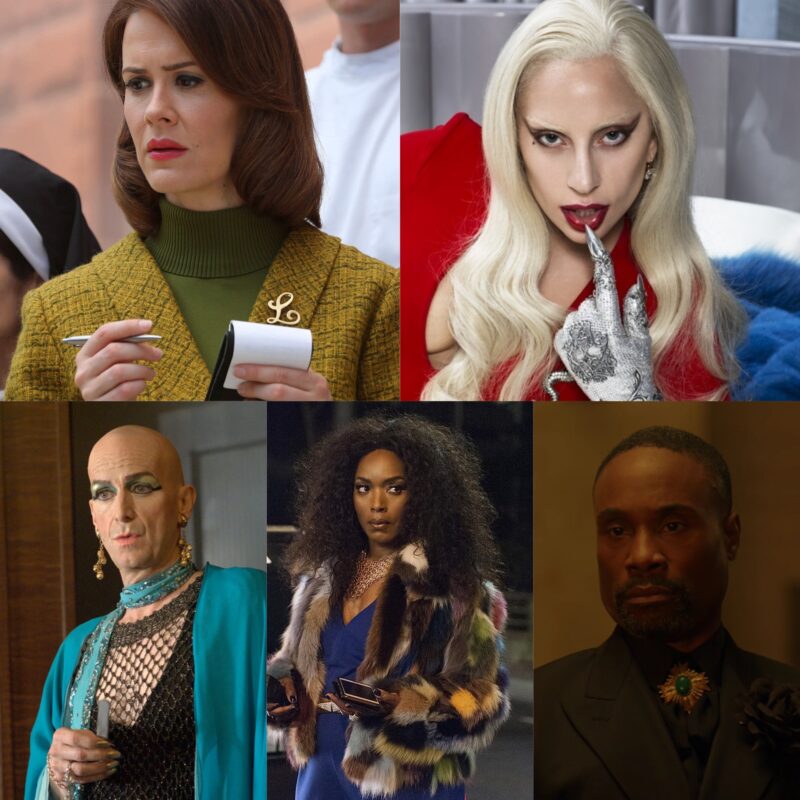
Most, if not all, seasons of American Horror Story features at least one or more major queer character. Many of them are even main characters. Much like the seasons themselves, some of these characters and their storylines are better than others. Being that this is a horror show, many of them do die, but most characters die in horror projects. However some make it, and triumph. Ask a friend where to start, pick a season or two, and have fun!
Hotel had Lady Gaga and a glorious bisexual Pam-Grier expy played by Angela Bassett. Asylum, often cited as the best season by fans, features Sarah Paulson as the protagonist, Lana Winters, a lesbian journalist imprisoned in an insane asylum. Coven and Apocalypse were the ones about the witches. I also personally loved 1984 which featured a post-Pose Angelica Ross in a satisfying role and team-up with Emma Roberts.
Claws: Quiet Ann, Arlene Branch, Clay “Uncle Daddy” Husser, and Toby Evans
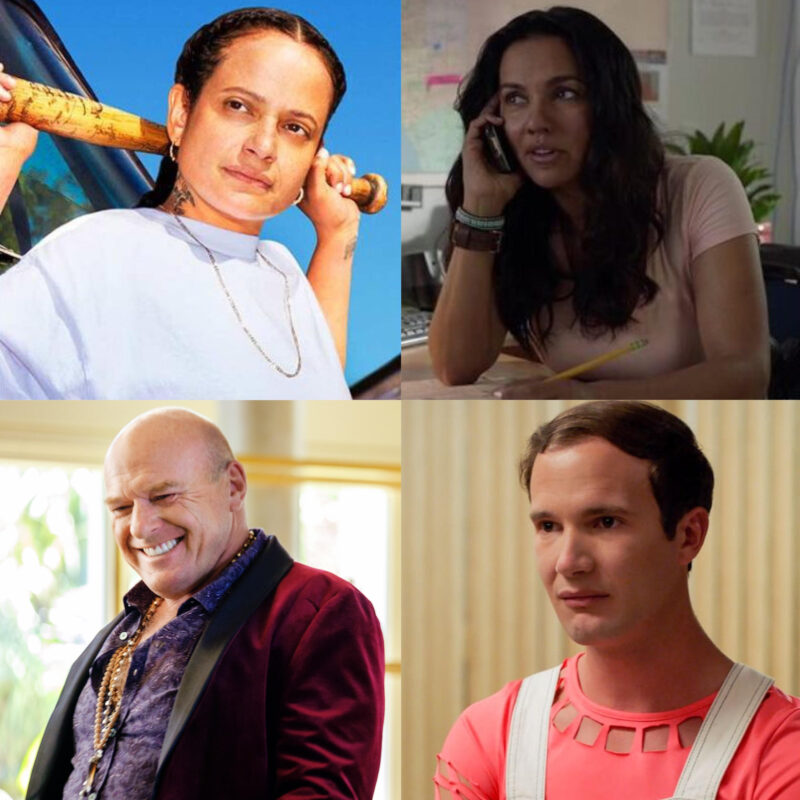
At the time we may or may not have realized series lead Niecey Nash herself is, in fact, queer, but her character was not. Four of the most notewrothy queer characters are Desna’s (Niecy’s) muscle Quiet Ann, her rival/situational ally/occasional enemy Uncle Daddy, his twink lover Toby, and Ann’s main love interest Dectective (later special agent) Arlene. This crime drama series inevitably features a lot of betrayal, violence, chess-like strategies, and deaths. Some of these folks don’t make it to the end, but the jounrey is still worthy of a watch.
I May Destroy You: Kwame and Kai
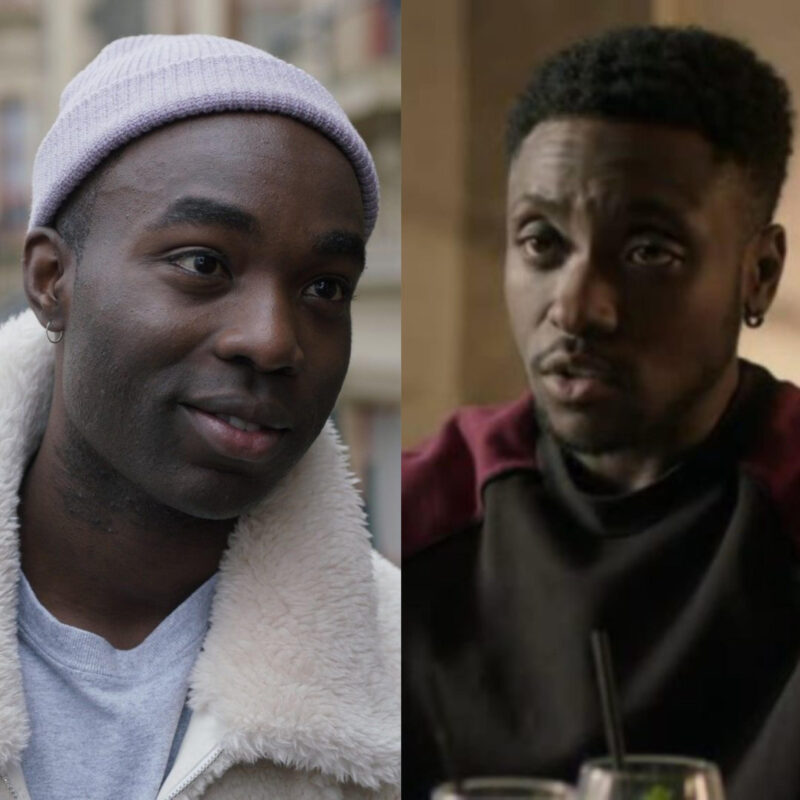
This is a very heavy watch dealing with SA, racism, homophobia, and various other isms. Michaela Coel as Arabella, Papa Essiedu as Kwame, and Weruche Opia as Terry have amazing chemistry as best friends and work great as our leads. Each of them are given amazing nuance and character development as they navigate their respective traumas, and try to show up for each other.
Transman character Kai gets very little in the way of character development and mostly there to serve as Terry’s unexpected love interest. However, it was nice to see more transman visibility, let alone Black. Lets hope we get more.
Killing Eve: Eve Polastri, Villainelle, Bill Pargrave, and Nadia Kadomtseya
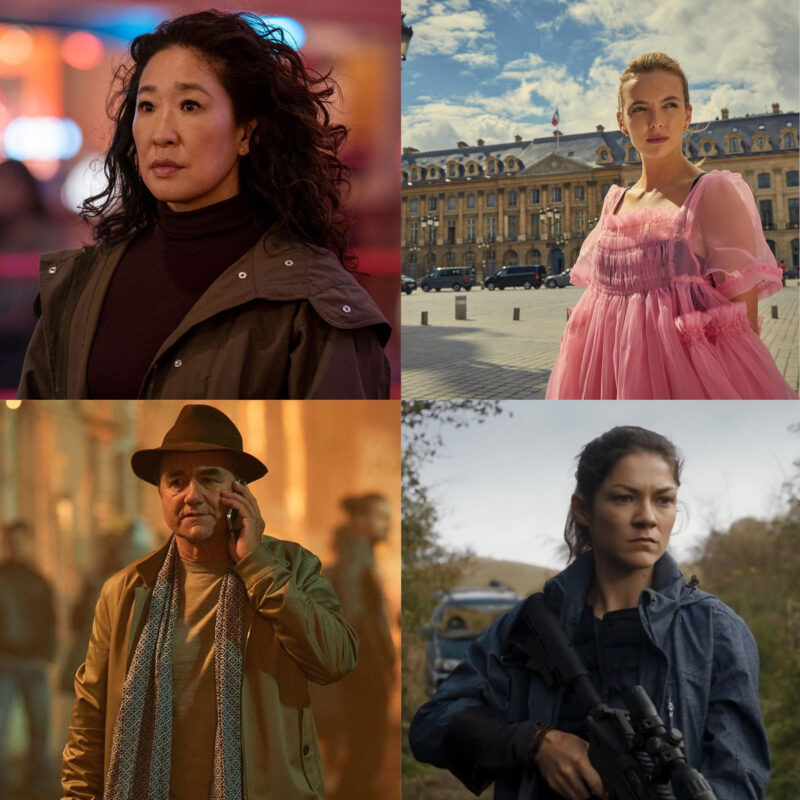
First off, Laura Neal needs to be punished for her crimes against the LGBTQ community. Secondly, I debated including this series at all because of how offensively it ended. But it is important to uplift the hard work of Sandra Oh, Jodie Comer, season 1 (the best season) showrunner Phoebe Waller-Bridge, season 2 (also very good) showrunner Emerald Fennell, and for introducing many people to Kirby Howell-Baptiste. Ignoring the final two seasons, which I still haven’t seen yet, I am acutely aware of what went wrong, but when it worked this show was groundbreaking. Eve and Villainelle have electric chemistry and are so queer it hurts. The first two seasons deserve a rewatch or first watch.
Scratch that. Watch the entire series in conjunction with the Well Well Villainelle podcast by the hilarious, chaotic, whip-smart, and unabashedly queer Candice Jones and Terrence McDale. Experience the joy of the first two seasons, but witness how greatness can fall and be bastardized by bad writers with agendas in the final two seasons. The descent is absolutely better with Terrence and Candice along for the ride. They’ll help you laugh through the pain.
Special Mention: Batwoman and Wildemoore
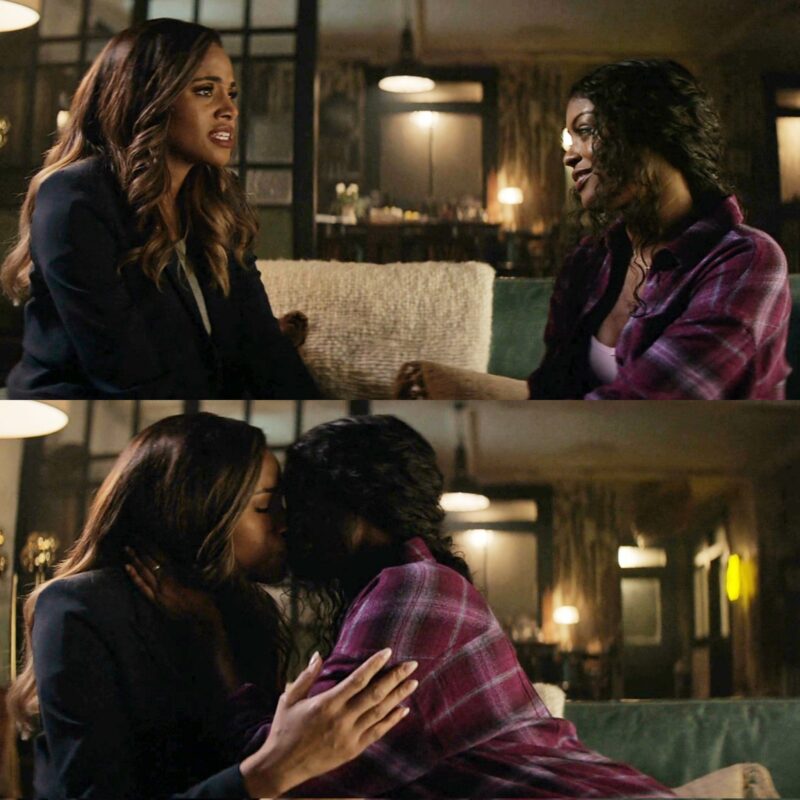
Recap of the series
Despite me leaving out superhero content for the rest of the article, I decided to end with a beautiful pairing gone too soon but deserves to be seen and experienced by everyone. I also discussed this couple in a previous article, but they live rent-free in my mind forever. After a very lackluster Ruby Rose as the titular Batwoman, Kate Kane in that case, season two gave us a much stronger actress as Ryan Wilder, our new Batwoman.
The first half of season two was rough where he writing was concerned. Cliche and cringe dialogue and episode titles (“Bat Girl Magic”… really??? Plus that whole “I’m just a number” speech), a horendous initial white woman love inerest for Ryan, and all of the Black characters being adversaries turned off a lot of Black fans. Fortunately, the latter half of season two and season 3 as a whole did remarkably better. The three Black main characters bonded and got to know each other and how each saw their respective experiences with Blackness in Gotham, as well as their differeing worldviews, opinions on law enforcement, and appraoches for dealing with antiblackness.
We resolved Kate’s storyline and character with a much better actress so that her shadow would no longer hang over Ryan. We brought in Poison Ivy herself with a disturbingly talented actress as well as gave Korean series regular Mary Hamilton her best storyline and a genuinely interesting one to boot, tied to Poison Ivy and stepsister Alice. Alice and Luke also get great storylines and character development and we get Robin Givens as well as a Black Joker.
Wildemoore
But the best thing about Batwoman was the slow burn from the adversarial, to grudging respect, to friendly, to flirty, to romantic and sexual relationship between Ryan and Sophie, aka Wildemoore. We needed to resolve Kate and her relationship with Sophie before we could go full steam ahead with Wildemoore. This relationship was maybe the second Black queer relationship on the CW since the timultous queer men ship of The L.A. Complex. If you know, you know. The CW loves queer swirls, especially white and Black, so it was nice that, eventually, Batwoman turned the train around and made Ryan and Sophie happen, and it was breathtaking.
Be the first to leave a review.
Your browser does not support images upload. Please choose a modern one
I identify as a womanist. I also identify as both gay and queer. I am gender fluid and respond to he/him, she/her, and they/them. I am a Black American-Descendant of American Chattel Slavery who is pro Black Diaspora and pro creating Global Black Strongholds (Blacks across the Diaspora holding it down in each region to allow all Blacks to go to each, and be safe and in community together). I am a comics, tv, movie, and video game stan. My expertise for comics and related media are DC Comics, Marvel Comics, Archie Comics, and a little bit of others here and there, but I'm hoping to branch out to other, Blacker and indie comics and related content. I'm a binge watcher and can talk about shows and movies for days. You can find me on YouTube and various other social media platforms as thaboiinblue.

1 Comment
Leave a Reply
Cancel reply
Leave a Reply
This site uses Akismet to reduce spam. Learn how your comment data is processed.

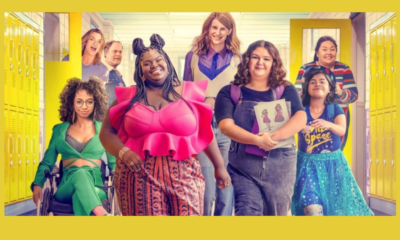

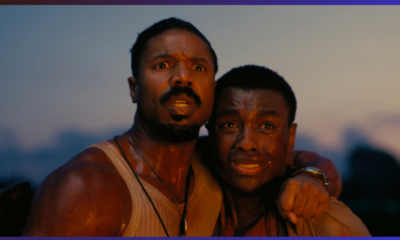

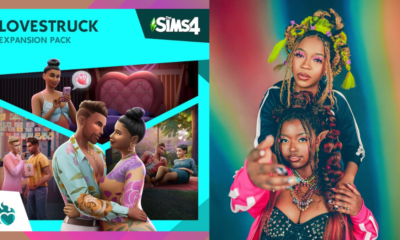

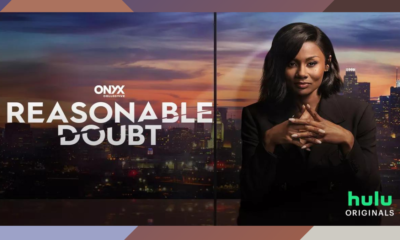









Pingback: Iconic TV Villains